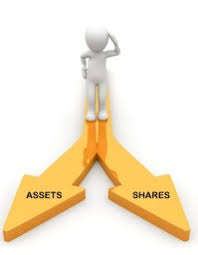How to value an IFA business?

In the myriad of options available to sell an IFA business and various different IFA acquirers – do you know how to value a financial services business?

Size of your IFA business?
For small firms (i.e. sole traders or partnerships), you will generally be valued on a multiple of recurring income. For larger firms (whereby existing staff / IFAs will be included within the sale), you are more likely to be valued on an EBITDA calculation (multiple of adjusted profit). Medium size firms could fall into either category depending on various factors.

Method of IFA sale?

How long to receive payment for an IFA purchase?
Typically, buying an book of business from an IFA will have payment terms of 50% upfront with 25% at 12 months and 25% at 24 months. Individuals seeking a longer earn out period could benefit with more favourable negotiations by allowing the acquirer more time to recoup the costs of the acquisition deal

0.5% or 1% fees – which is better?
Where client fees are already paying around 1%, this generally offers no uplift potential for acquirers and this might lead to a lower multiple being offered. However, not is all lost because the net pay-out is still likely to be better and clients already paying a higher adviser charge are more likely to transition to a similar fee structure

Funds on Platform vs Bonds
IFA Acquirers tend to prefer acquiring funds held on platform rather than in bonds. Moving assets from legacy bonds to a platform allows for:
- A more controlled investment approach
- More effective risk monitoring
- Closer fit with a fee-charging structure
- Better investment experience for the client
- More revenue for the business

Business mix (including high risk areas – DB transfers, EIS / VCT or UCIS)
‘Vanilla’ past advice is generally an acquirer’s preference. Areas which could lead to future claims of inappropriate advice under the Financial Ombudsman Service, such as unsuitable DB transfers or unregulated schemes could lead to acquirers inheriting future redress payments with higher loading of PI premiums. Where there have been multiple sales in these higher risk areas this will often deter acquirers from offering a share purchase

Age of clients
All portfolios are likely to have a mix of client ages. However, if there is a high percentage of clients over 75, particularly in pension decumulation then you can expect to have a lower multiple applied against the recurring income from these sources; due to the anticipated reduction in longevity of assets
